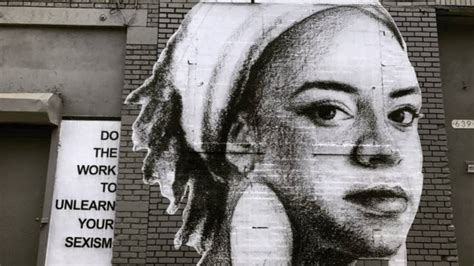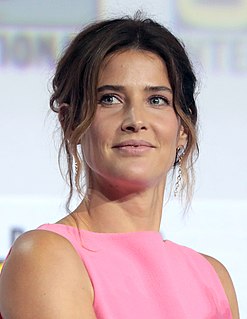A Quote by Tatyana Fazlalizadeh
I feel like this is a feminist issue and is going to be a part of a feminist conversation, and I wanted images of women of color in that conversation - feminism historically has left us out.
Related Quotes
If white American feminist theory need not deal with the differences between us, and the resulting difference in our oppressions, then how do you deal with the fact that the women who clean your houses and tend your children while you attend conferences on feminist theory are, for the most part, poor women and women of Color? What is the theory behind racist feminism?
I consider myself 100 percent a feminist, at odds with the feminist establishment in America. For me the great mission of feminism is to seek the full political and legal equality of women with men. However, I disagree with many of my fellow feminists as an equal opportunity feminist, who believes that feminism should only be interested in equal rights before the law. I utterly oppose special protection for women where I think that a lot of the feminist establishment has drifted in the last 20 years.
Radical militant feminist believes that women of color and Black women in particular have written the cutting edge theory and really were the individuals who exploded feminist theory into the directions that has made it more powerful. So I see us as the leaders not just of Black people and Black women in terms of feminism but in terms of the movement as a whole.
Naturally my stories are about women - I'm a woman. I don't know what the term is for men who write mostly about men. I'm not always sure what is meant by "feminist." In the beginning I used to say, well, of course I'm a feminist. But if it means that I follow a kind of feminist theory, or know anything about it, then I'm not. I think I'm a feminist as far as thinking that the experience of women is important. That is really the basis of feminism.
I was always a feminist. My mother was a feminist; my grandmother was a feminist. I always understood women had to fight very hard to do what they wanted to do in the world - that it wasn't an easy choice. But I think the most important part is that we all want the right to be taken seriously as human beings, and to use our talents without reservation, and that's still not possible for women.
I believe I was raised with feminist values, but I don't think I ever heard my Mom call herself a feminist. Before I identified as a feminist myself, I thought of feminism as more of a historical term describing the women's movement in the '70s but didn't know much about what they had done and didn't think it applied to my life at all.
For a lot of women who don't go to college, or for a lot of women who aren't in New York or D.C. or someplace where there's like a large feminist organization they can get involved in, they may be doing feminist work, right, like locally or with a grassroots organization or in their own lives, but if they don't have that support system and if they don't have that availability to feminist language, I think we're missing out on something.
I think that blogging and the Internet has completely changed feminism for ever, I think. You know, it used to be, 10 years ago, if you wanted to have a strong, influential voice in the feminist movement, you really needed to be part of this New York/D.C. elite group of feminists, or part of a mainstream feminist organization. And now it's kind of an amazing thing that you can just start a blog and put your voice out there and build your readership.
The idea of being a feminist-so many women have come to this idea of it being anti-male and not able to connect with the opposite sex-but what feminism is about is equality and human rights. For me that is just an essential part of my identity. I hope [Girls] contributes to a continuance of feminist dialogue
There was no real strategic decision about editorial tone. It was kind of a write whatever you want to write, and we'll see how it goes. I think that we lucked out in that all of the women who started writing at Feministing.com were really funny, and I don't think that's something people are used to seeing or hearing when they read feminism. You know, you think feminism and you kind of think academic, women's studies, dry, humorless; there are all of these stereotypes that go along with what feminist thought is and what feminist writing is.































